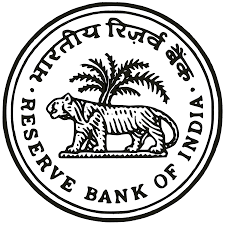CURRENT AFFAIRS
Get the most updated and recent current affair content on Padhaikaro.com
RBI’s Retail Direct Scheme
- Vaid's ICS, Lucknow
- 10, Jan 2022

Why in News?
Recently, the Prime Minister has launched the Reserve Bank of India (RBI)– Retail Direct Scheme to open up the Government bond market for the retail investors.
In February 2021, RBI proposed to allow retail investors to open gilt accounts with the central bank to invest in Government securities (G-secs) directly.
- Under the scheme, retail investors (individuals) will have the facility to open and maintain the ‘Retail Direct Gilt Account’ (RDG Account) with the RBI.
- Retail Investor is a non-professional investor who buys and sells securities or funds that contain a basket of securities such as mutual funds and Exchange Traded Funds (ETFs).
- A Gilt Account can be compared with a bank account, except that the account is debited or credited with treasury bills or government securities instead of money.
The scheme places India in a list of select few countries offering such a facility.
Aim:
- The move is aimed at diversifying the government securities market, which is dominated by institutional investors such as banks, insurance companies, mutual funds and others.
- While foreign portfolio investors were allowed to invest in G-secs, their holding is around 2-3% in the overall market.
Scope:
- It offers a portal avenue to invest in Central government securities, treasury bills, State development loans and sovereign gold bonds.
- They can invest in primary as well as secondary market government securities markets.
- Negotiated Dealing System-Order Matching Segment (NDS-OM) means RBI’s screen based, anonymous electronic order matching system for trading in Government securities in the secondary market.
Significance:
Building an Atmanirbhar Bharat:
-
So far, in the government securities market, small investors class, salaried class, small traders had to invest through banks and mutual funds in an indirect manner.
Improved Ease of Access:
-
It will make the process of G-sec trading smoother for small investors therefore it will raise retail participation in G-secs and will improve ease of access.
The Reserve Bank – Integrated Ombudsman Scheme was launched by Prime Minster Narendra Modi in November 2021. The scheme aims to improve the grievance redress mechanism that addresses the complaints generated against the entities regulated by RBI.
What is Integrated Ombudsman Scheme?
- The scheme addresses the financial grievances.
- It helps to avoid situations where different entities of the central bank should be visited.
- It allows to file complaints, track its status and submit documents in a single point.
- The scheme has one email id, one portal and one address for all complaints and hence is called the Integrated Ombudsman Scheme.
- Ombudsman is an official body where the customers can file complaints if the financial institute did not address the complaint within thirty days.
- The customers can also approach ombudsman if he or she is not satisfied with the explanation provided by the financial institution.
What are the benefits of Integrated Ombudsman Scheme?
- The scheme will help to remove the jurisdictional limitations.
- It provides single reference point for the customers to track status of complaints, submit documents and provide feedback.
- The scheme has set up Centralised Receipt and Processing Centre. To handle all the complaint receipts.
- This will help India move towards One Nation – One Jurisdiction approach
From which scheme was the idea of Integrated Ombudsman Scheme derived?
- The theme of Reserve Bank – Integrated Ombudsman Scheme is based on One Nation – One Ombudsman scheme.
- The One Nation – One Ombudsman scheme aims to address the complaints registered against non – banking financial companies, bankers and digital transactions.
- It operates under the theme of one portal, one postal address and one e – mail address for the customers to register their complaints.
- The scheme operates from 22 offices of the central bank spread across the country.
FACTS FOR PRELIMS:
Next COP venues:
The 2021 UN Climate Change Conference, COP26, concluded recently at Glasgow.
- At the end of the conference, the council decided that the 2022 edition of the Conference of Parties, or the 27th COP, will take place at Sharm El-Sheikh, Egypt, and the 28th edition in 2023 will be held in the UAE.
Kashi corridor project:
- The project connects the Kashi temple with the ghats of the Ganga, with a paved walkway around 320 metres long and 20 metres wide.
- It will also have facilities for a museum, library, a facilitation centre for pilgrims and a Mumuksha Bhawan (salvation house).